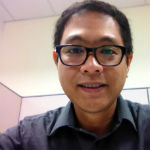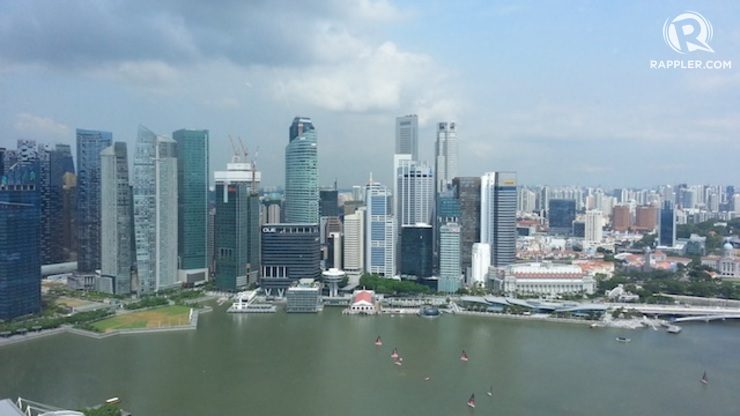SUMMARY
This is AI generated summarization, which may have errors. For context, always refer to the full article.
 It has now been one year since my family and I moved back to Manila after living for two in Singapore. And while I cannot dare say that two years had been a very long time, I can say that the experience has had some lingering effects on me. Little things really. Like being more open to the way to spell words like “colour,” “organisation,” and well, “learnt.” Interspersing my conversations with “can,” “so how?” and the occasional “aiyoh!” in exasperation. Yearning for a really good bowl of spicy Mee Siam and a drink of iced teh tarik.
It has now been one year since my family and I moved back to Manila after living for two in Singapore. And while I cannot dare say that two years had been a very long time, I can say that the experience has had some lingering effects on me. Little things really. Like being more open to the way to spell words like “colour,” “organisation,” and well, “learnt.” Interspersing my conversations with “can,” “so how?” and the occasional “aiyoh!” in exasperation. Yearning for a really good bowl of spicy Mee Siam and a drink of iced teh tarik.
More than lingering effects, I remain thankful for my job that allowed me to experience living in a different country and gave me a unique perspective not only of my host country but more so my beloved home land. Take for instance two separate news articles that went around in social media last year. One article headlined Singapore as the world’s least emotional country based on a worldwide Gallup survey. Meanwhile another article declared our very own NAIA 1 as the world’s worst airport based on an internet travel site survey two years in a row! Can there be a correlation between airports and emotions? Sure, loh!

Changi vs NAIA
One of the first words and cultural traits a foreigner learns in Singapore is the word “kiasu” or “afraid of losing out.” In a historical context, Singapore’s exceptional growth from 3rd world to 1st world within the past 50 years or so, meant knowing and accepting its limitations as one of Asia’s smallest countries with very limited natural resources and then having the discipline and perseverance to build on the little they had – not to lose out. One can see the fruits of “not losing out” in the form of Changi Aiport, world renowned for its competitiveness in terms of aviation policies, business practices, safety, efficiency, and customer experience. Not to mention its having the first ever airport butterfly garden and the world’s tallest indoor slide in an airport! Visit Singapore and you will notice all the tourist attractions that are touted as either “first,” “largest,” and/or “only.”
In a country only a bit bigger than Metro Manila, being iconic is key. Just check out the country’s distinctive city skyline dotted by architectural marvels like the flying giant ship (Marina Bay Sands), giant electric trees (the Gardens by the Bay), the giant Ferris wheel (the Singapore Flyer), and the giant durian building (Esplanade).
A characteristic called “kancheong” or a tense sense of urgency; one may appreciate why Singapore has a really great airport, perhaps at the cost of spontaneity and general well-being.
An article on the Gallup survey had this interesting subhead: “Only 36% of Singaporeans report feeling positive or negative emotions on a daily basis, compared to 60% in the Philippines.” We Filipinos are indeed attuned to our emotions which allow us to have a strong sense of affiliation or relating with one another – a sense of “pakikisama” and “pakikipagkaisa.” How does this relate to NAIA being voted the world’s worst airport?
Never mind the poor maintenance of facilities or inefficient processes, how would you like to see your airport officers take their sweet time asking each other, “Kumain ka na?” (Have you eaten), “Kailan ka magbre-break?” (When’s your break?), and “Anong ulam mo?” (What’s for lunch?) while you stand there hours on end along with all other weary passengers waiting for their turn. Add to this a sense of face-saving or embarrassment – “hiya.”
True story I must add, that the officer took notice and said “Ay sorry po, Sir, naghihintay pala po kayo.” (Oh sorry, Sir, didn’t realize you were waiting.) I smiled back warmly of course. In the Philippine setting, emotions abound when a colleague is perceived as a teamplayer – “magaling makisama” and as one who is over-reaching – “pakialamera.” More so a boss who is too kind or too strict. And yes, everybody has to weigh in and express himself/herself.
Sometimes I think that our great ability and need to express ourselves has led us to create the most creative and artistic advertisements – that cover most of our skyline with gigantic billboards (that turn deadly during typhoon season). Our person-centric culture has also emboldened our local politicians to litter every lamp post, pedestrian walk, and other public spaces with their smiling mugs and initials – with the very taxes we give them as if the cities belonged to them and their families!
Juxtapose
There is more juxtaposition to be found between our two countries. In Singapore, where meritocracy comes first, citizens are shaped to become driven, competent, and pragmatic members of society. Where one cannot get in the way of progress. The city state is clean, green, efficient, and a showcase for development. With a highly skilled and educated population, foreign workers from all over Asia flock to this city for work opportunities for the more physical and menial jobs, adding further stress to the locals who have to deal with over-crowded public transportation (no matter how efficient) and challenging cultural differences (no matter how diverse Singapore already is).
In the Philippines, where God-fearing, familial relationships are important, starting from birth, citizens are shaped to become kind, expressive, and nurturing albeit with the risk of being oversensitive in both personal and professional relationships, fatalistic, and tolerant of mediocrity.
It is no surprise that we Filipinos are known to be one of the friendliest people in the world. We’re such a kind and forgiving people that we even elect former mutineers, plunderers, and inexperienced movie stars into the government “kasi mukha naman siyang mabait (because he looks kind).” Unfortunately, all the niceness cannot erase our problems of extreme poverty, over population, and corruption that is both cause and effect of our culture.
It is no mystery, then, that our countrymen flock in droves to other countries like Singapore, to help their families have better lives and futures – tragically, by being away from their loved ones.
Different but the same
When one peels away all the economic, societal, and cultural differences, we are all the same after all – ordinary people trying to figure things out in the world looking for fulfillment and caring for loved ones. I am thankful to have made friends in Singapore as they taught me the value of getting the job done with discipline, perseverance and (a lot) of thoroughness.
I learned that words trump actions, having realized that we Filipinos do have a tendency to express a lot of them before getting anything done. (As long as we all get along, right?) Hopefully I rubbed off on them some Filipino warmth and light-heartedness or at least enticed them to take a vacation (in one of our many beautiful beaches).
When I lived there, I could not help but try to remind my Singaporean friends how lucky they are and how proud they should be for what their country has achieved. While they can continually rant about their government for being too strict and demanding, the crowded trains, and the influx of foreigners that threaten the old ways, I could not help but be sad about news of our government officials stealing from us, our poor and decaying infrastructure, and the flight of our countrymen away from our homeland.
As neighbors, I feel we do have much to learn from each other. Perhaps if we take the best parts of “kiasu and kancheong” and “pakikisama and hiya.” After all, both are likely based on the same Asian value of respect and saving face. There’s a feel-good buddy movie somewhere in there between a wealthy, straight-faced and stressed out guy and a struggling happy go-lucky one – both looking for better lives.
Having been privileged to have worked abroad, by opportunity and not by forced circumstance, I realize that I can only be thankful for my experience. And now that I am back home, I can say that for all that I’ve written, there is no better place than home. And yes, it is more fun in the Philippines. – Rappler.com
Michael Santos is an HR practitioner, occasional writer, travel enthusiast, comic book geek, child of the ’80s, and full-time husband and daddy. He is hopeful for the Philippines’ future.
Add a comment
How does this make you feel?
There are no comments yet. Add your comment to start the conversation.